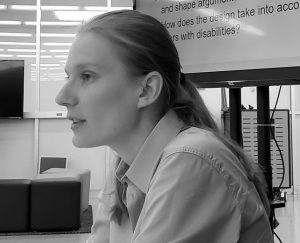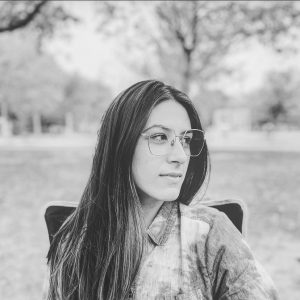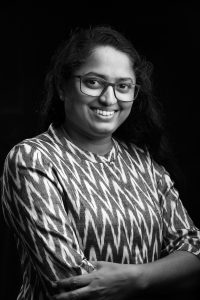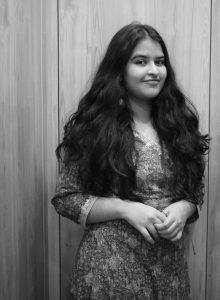ELO is happy to announce the 2021-2022 ELO Fellows.
Hannah Ackermans, University of Bergen, Norway
Laura Sánchez Gómez, Faculty of Philology at the Complutense University of Madrid
Alexandra Martin, Université du Québec à Montréal
Shanmuga Priya, Department of History, Lancaster University, UK
Zahra Rizvi, Department of English, Jamia Millia Islamia
The ELO Fellows program is aimed to expand our scholarly activity, and our curatorial and creative practices with the appointment of six graduate and early career fellows. Extending our community, the fellows are also advancing our Equity, Diversity, and Inclusion efforts. The Fellows program is overseen by Joseph Tabbi, who was assisted by Anna Nacher, Erik Loyer, and María Mencía on the selection committee.
The ELO Fellows are fivegraduate and early career Research Fellows for the academic year 2021/22, each of whom have been awarded a $500 stipend along with a one year ELO membership. Fellows help contribute to various ELO projects, including the Electronic Literature Directory and its alliances with partner organizations such as ELO.
“We are excited to welcome this excellent group who will support ELO’s efforts to promote scholarly and creative work in electronic literature while working to create an inclusive and welcoming community,” said President Leonardo Flores, announcing the Fellows. “The Fellows enrich our community and help us realize our plans to promote and celebrate electronic literature.”
Presenting the 2021-22 ELO Fellows:
Hannah Ackermans

As a PhD candidate in digital culture at the University of Bergen (Norway), Hannah Ackermans researches the digital practices in the (academic) field of electronic literature. In addition to their research and teaching record in electronic literature and digital humanities, Ackermans was co-director of the Digital Humanities Network at the University of Bergen throughout 2019 and is a member of the ELMCIP Knowledge Base editorial board. Their current research interest is the digital accessibility of electronic literature and this will be the focus of their work as an ELO Research Fellow.
Laura Sánchez Gómez

Laura Sánchez Gómez currently teaches Didactics of Literature and Digital Humanities at University Complutense of Madrid and Nebrija University. She has a PhD in Literary Studies at Complutense University of Madrid with a thesis about electronic creation and the relationship between literature and art. She is member of the interdisciplinary Research Group LEETHI (European and Spanish Literatures from Texts to Hypermedia), and co-founder of CIBERIA, a platform about Spanish Language Electronic Literature. She has worked on different interdisciplinary cultural management projects at the Cervantes Institute, such as the exhibitions Return to Max Aub or Quijotes around the world; and she is co-curator of the exhibition Lorem BITsum: Electronic Literature, in Matadero de Madrid (2018). Her research focus is based on an interdisciplinary perspective focus in the changes brought by digital transformation in literature, arts and education.
Alexandra Martin

Alexandra L Martin (she/her) is a researcher and doctoral student specializing in digital literary arts, living and working in the unceded territory of Tiohtià:ke. Since 2019 she has worked at the Laboratoire NT2 at the Université du Québec à Montréal, where she also collaborates as a curator, notably on the exhibition S’éclipser | Phases of Resilience (2020) for the HTMlles Festival as well as Trans[creation] (2021). Her research centers on digital and organic networks of communities and the question of communal memory. Alexandra employs an ecocritical approach to her research and curatorial work, emphasizing the experiential process of reading or consuming digital art and the transformative power of this process over physical and digital spaces.
Shanmuga Priya

Shanmuga Priya’s research and teaching interests include an interdisciplinary focus in the areas of digital humanities, digital environmental humanities and digital literature. She is particularly interested in building and applying digital tools and technologies for Humanities research. She completed her Ph.D. at Indian Institute of Technology Indore, India. She was a Postdoctoral Research Associate at Lancaster University, UK. She also received Postdoctoral Fellowship at University of Toronto, Canada. She has published papers in national and international journals. She is one of interim executive committee members of DHARTI.
Zahra Rizvi

Zahra Rizvi is Ph.D. scholar at the Department of English, Jamia Millia Islamia, Delhi, India, and founding-member of the Indian chapter of Digital Games Research Association (DiGRA). Her research interests include popular culture and media, young adult participatory spaces, video game studies, and digital humanities. She is currently working on a Media Archaeology project concerning Noha and Majlis E-lit Practices in South Asia. She was recently Ministry of Education-SPARC Fellow in Digital Humanities and Digital Cultures at Michigan State University, where she worked as Project Manager and Research Fellow on the “Digital Apprehensions of Indian Poetics” collaborative project.
